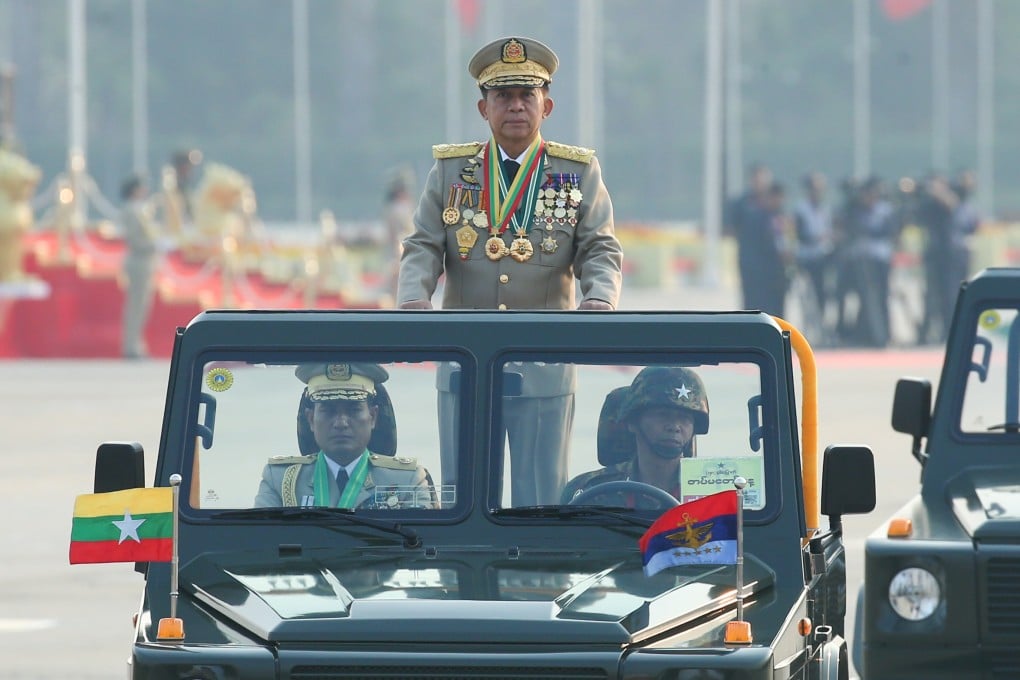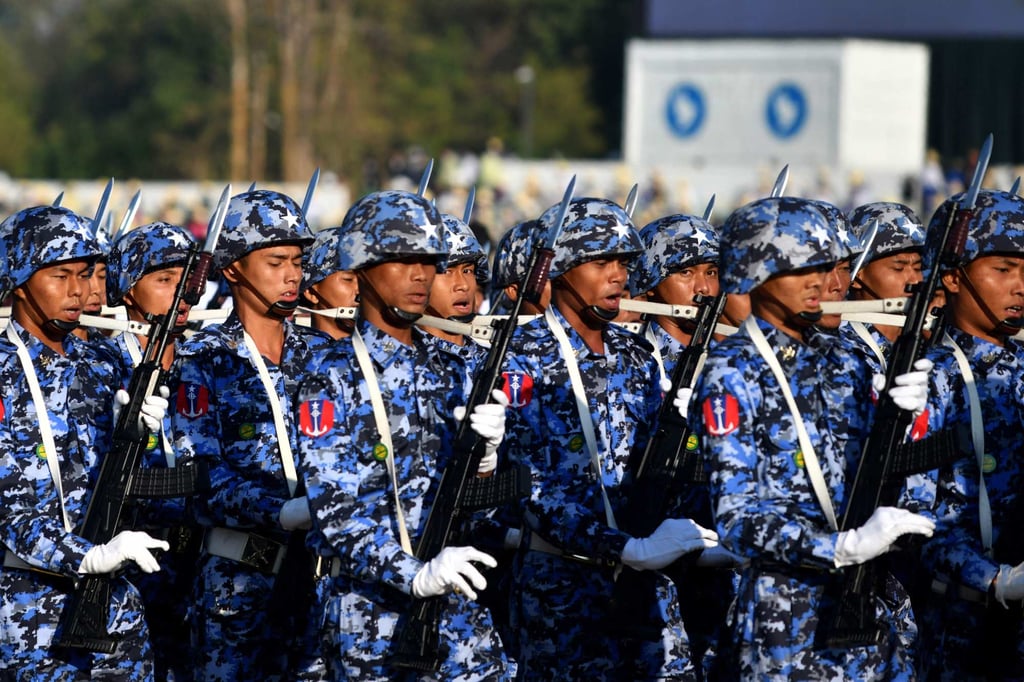Indonesia says it ‘never’ sold arms to Myanmar’s junta. But was there a go-between?
- Activists have accused Indonesian state-backed weapons makers of dealing with Myanmar’s generals in defiance of a UN resolution that Jakarta backed
- Observers say it could hurt Indonesia’s reputation as a peace broker, its credibility with Myanmar people – and Prabowo Subianto’s electoral prospects

Defend ID, Indonesia’s state-owned defence holding company set up in 2022 to reduce dependency on military imports, said in a statement last week that it was “fully supporting” the UN resolution and had “never exported” to Myanmar since the coup.

The only “export activities to Myanmar” it mentioned in its October 4 statement were for “sports specification ammunition products” ahead of the Asean Armies Rifle Meet shooting competition in 2016.
“We always comply with and adhere to applicable regulations, including Indonesia’s foreign policies,” the Defend ID statement said.
But according to Kevin O’Rourke, producer of the Reformasi Weekly newsletter that’s analysed politics and policymaking in Indonesia for the past two decades, “a commonplace arrangement in defence contracting is to carry out transactions via third-party intermediaries offshore, in jurisdictions such as Singapore”.